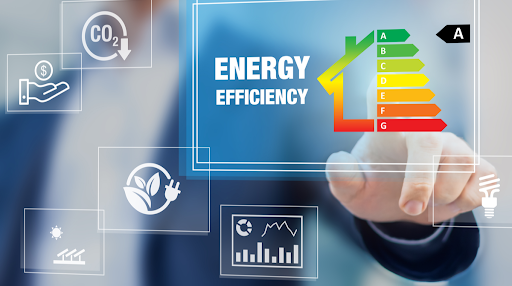
Heating your facility throughout a harsh winter can be an expensive endeavor. In addition to high energy bills, your CO2 footprint will grow significantly. Luckily, facilities can conserve heat while using their current equipment or, if upgrades are an option, move to more fuel-efficient or alternative energy sources for heating. With regulations like Boiler MACT (Maximum Achievable Control Technologies) becoming more prevalent, understanding the state of your current systems will help you develop a plan for the future.
Upgrades to Existing Technology
Natural gas boilers have been around since about 1868, and while the principles have stayed the same, many of the features on these boilers have come a long way. These advancements make natural gas boilers safer, cleaner and more efficient to operate.
Combustion Analysis
Boilers, just like vehicles, have to be tuned so that they run just right. If your facility’s boilers haven’t been tuned in a while, you could be throwing money away. Too little oxygen, and you end up with unburnt fuel being exhausted without burning. Too much oxygen messes up the combustion temperature. Getting the ratio just right maximizes the heat your boiler gets from combustion. Consider having an analysis and tuning done to get your current systems running right.
Modulating Burners
Boilers are often selected to handle the max load that the facility will see. That means that the boiler is designed to run full out on the coldest day of the year to keep the facility warm. That’s great, but what happens all of the other days of the year?
For a long time, boilers were capable of just on-off operation - then modulating burners came out. A modulating burner allows the boiler to run at less than full capacity. Without this capability, the boiler would turn on at full blast and then turn off repeatedly to try to satisfy the facility’s heating needs (think of it like a car where your only options are slamming on the gas or slamming on the brakes). A modulating burner lets you get just the right amount of heat and results in more efficient operation and less wear on the burner.
Water Temperature Reset
This feature, available on many boilers, can save a great deal of energy when used properly. It takes more energy to heat water to higher temperatures. By lowering the desired water temperature for your boiler, you can save energy in your facility. The problem is, you only want to lower that temperature when you’re certain that there won’t be a need for water at the higher temperatures. Water temperature reset controls typically look at the outdoor air conditions (or the return water temperature) to determine when a lower water temperature will work, and then make the adjustment.
New Technology
While making existing technology more efficient is certainly a worthwhile practice, some of the new technology entering the market will truly change the way facilities of the future are sustainably heated.
Hydrogen Boilers
The cool thing about burning hydrogen is that the only byproduct is pure water. No CO2 is produced, making this type of boiler extremely environmentally friendly. Hydrogen can also be used in many boilers as a blend (with natural gas) for times when pure hydrogen may not be available in the quantities needed.
Biogas Boilers
Anything that produces organic waste (think breweries, farms, and food production) has the potential to generate biogas. The organic waste is collected and put into a special system where bacteria essentially digest the waste and produce biogas. This biogas can then be burned to generate heat. Because biogas availability can fluctuate, many biogas-ready burners are able to burn a wide range of fuels.
Bio-Oil and Liquid Fuel Boilers
Similar to how bacteria can generate biogas from organic waste, many other living organisms produce byproducts that can be useful and efficient when burned for heating. Fish oil and alcohol, for example, can be collected during the manufacturing process and used by boiler plants for facility heating. These products often have to be disposed of anyway, so using them for heating solves two problems.
Electric Boilers
Electric boilers are a great way to capitalize on renewable energy sources that may be present. Wind or solar can generate electricity, which an electric boiler can then use to generate hot water. While installation costs can sometimes be high due to the amperage required, this type of boiler produces no exhaust gases and has few moving parts, making it very reliable.
Determining sustainable ways to heat your facility can feel like a daunting task, and regulations like MACT don’t make it any easier. Having experts on your team can take some of the pressure off and help you feel like your facility has a plan for sustainability. Reach out to the experts at Tate today to learn more about sustainable ways to heat your facility this winter, and for more information on boiler operation and maintenance, check out this recording of our recent webinar.
